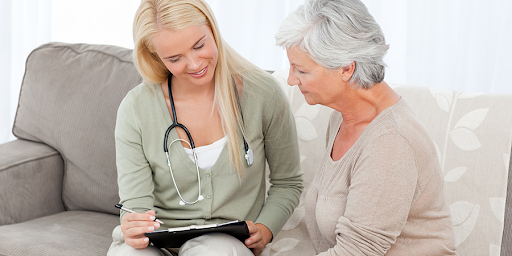One in just about every four people in the USA has overactive bladder (OAB). OAB can present as an uncontrollable urge to urinate, or as frequent urination including nighttime trips to the bathroom (nocturia). These symptoms can strongly affect the day to day life and severely affect the overall quality of life. Luckily, there are natural remedies and lifestyle changes that many people can use to supplement traditional medical treatment.
Overactive Bladder Lifestyle Modifications
Bladder Training
Bladder training is one of the effective ways of managing OAB. Gradually increasing the time between bathroom visits is retraining the bladder. Set up a voiding schedule of 1-2 hours intervals in the beginning. Gradually increase these intervals over time. It can alleviate the need for too frequent and too urgent urination.
Kegel Exercises
Another helpful practice when it comes to strengthening the pelvic floor muscles are Kegel exercises. These muscles help support the bladder, as well as help to improve bladder control. For doing Kegel exercises, pull in your pelvic floor muscles as if you were trying to stop urination. When you do hold the contraction for five seconds then relax for five seconds. Do three sets of ten repetitions a day. Adjustable for strength and bladder control, these exercises help to over time build muscle strength.
Relaxation Techniques and Mindfulness
OAB symptoms can be worsened by the stress, and can be alleviated by mindfulness and relaxation techniques. Meditation, deep breathing exercises and yoga are few practices that can lead to reduced anxiety and overall good health. Those who calm their mind and body are now experiencing fewer OAB symptoms and more control of their urges.
Dietary Adjustments
Bladder health is largely dependent on diet. Both spicy foods and spicy drinks can irritate the bladder and make OAB symptoms worse.
Reducing Bladder Irritants
Caffeine, alcohol, carbonated beverages, spicy foods, citrus fruits, smoking, and diuretics are common bladder irritants. Getting rid of or reducing the amount of these in your diet can help bring about marked benefits on symptoms.
Hydration Management
Hydration is key, but keeping your fluid intake in check is key too. Try to stick to normal intake of water a day, but avoid concentrating on large amounts in the evening so there won’t be any night time bathroom breaks. By establishing a hydration schedule, you will be able to get your fluid intake under control, and in the process, balance fluid intake with rhythm efficiency.
Include Bladder Friendly Foods
There are some foods that will help bolster your bladder health. Bladder friendly foods, suggested by urologist in Lahore, such as pears, bananas and nuts can be added to your diet. Less likely to irritate the bladder, these foods can provide some of the necessary nutrients for good overall health.
Natural Supplements & Herbal Remedies
Pumpkin Seed Extract
Due to its potential effectiveness in reducing OAB symptoms, Pumpkin seed extract has been getting some attention. There are some studies that can help with strengthening bladder function and decreasing urgency. Before you include any new supplements into your regimen, consult your healthcare professional.
Saw Palmetto
Another natural remedy for urinary health that may work is saw palmetto. It was traditionally used to help prostate health, but could also ease OAB symptoms, particularly in men. But it is again important to consult a healthcare provider before use.
Magnesium and Vitamin D
Magnesium and vitamin D are key to muscle health and good bladder control. The adequate amount of these nutrients can contribute to better bladder function through a diet or supplement. Leafy greens, nuts, whole grains, fatty fish, fortified foods, and exposure to sunlight are all sources of magnesium and vitamin D, respectively.
Bladder Control Behavioral Techniques
There are also some behavioral techniques that may help control OAB besides the changes in lifestyle.
Timed Voiding
Timed voiding consists in establishing an on-time regular schedule to deal with urgency and frequency. Planning bathroom breaks can help give someone control over their bladder habits and reduce anxiety about sudden urge.
Double Voiding
A technique called double voiding makes sure the bladder is empty. Wait a few moments after urinating and try to urinate again. This can reduce the likelihood of you getting residual urine in the bladder and cause urgency.
Body Movements and Physical Activities
Physical activity also can help with bladder health, but regular physical activity is needed. Regular exercise is not just good for your health, it can also help with weight control and therefore reduce pressure to the bladder.
Yoga and Stretching
Specific yoga, stretching exercises or exercises help relax and stretch the pelvic region. The pelvic floor may be strengthened with specific poses such as bridge pose and child’s pose, and bladder control can be improved.
When to Seek Medical Advice
Natural remedies and lifestyle changes can offer a great deal of relief, but it’s important to visit a urologist in Karachi if symptoms don’t subside. Such providers can help you identify the underlying cause and help you go on to treat you – sometimes with medications, sometimes with physical therapy.
Conclusion
You can handle overactive bladder through a blend of way of life changes, dietary changes, and behavioral strategies. A lot of people who suffer from OAB symptoms can relieve themselves with these practices and improve their quality of life.
